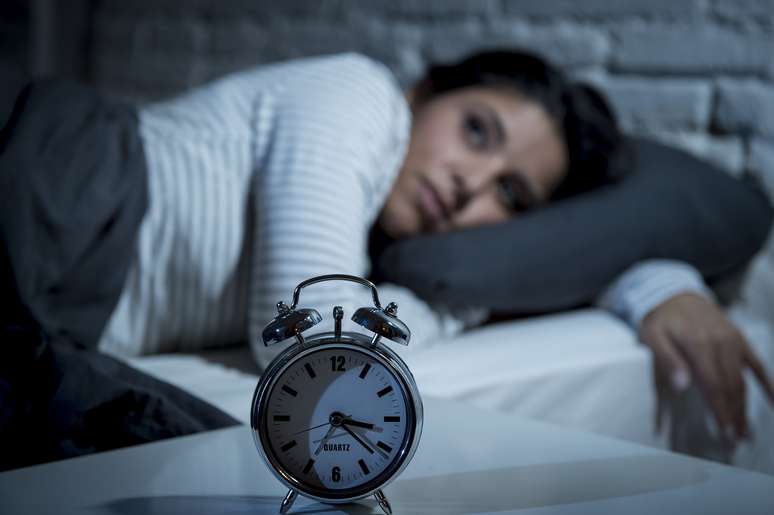72% of Brazilians suffer from sleep-related diseases and insomnia is the main one
Insomnia is characterized by difficulty falling asleep, staying asleep throughout the night, or by the tendency to wake up before the desired time. This condition can be related to several factors, such as physical and mental problems, or simply too much worry.
According to recent studies by the Oswaldo Cruz Foundation (Fiocruz), 72% of Brazilians suffer from sleep-related diseases, of which insomnia is the main one. The consequences can be serious, such as obesity, hypertension, diabetes, heart attack, stroke, dementia and depression. Therefore, it is essential to seek adequate guidance to improve the quality of your rest. See some common myths and also truths on this topic:
1. A dose of alcohol helps you sleep
Myth. This myth probably persists because alcohol tends to make people drowsy. But the truth is that the substance leads to poor quality sleep, especially in the second half of the night.
2. Insomnia is strictly mental
Myth. It’s true that psychological problems can cause insomnia. But excessive worries are not the only trigger. There are other reasons involved, such as poor sleep hygiene, illness, medication side effects, chronic pain, restless legs syndrome, or sleep apnea.
3. Exercise helps you sleep
REAL. Regular exercise can be a great way to promote better sleep. However, if you have trouble sleeping, avoid exercising too late. Strenuous exercise can make you more alert. It also increases body temperature, which can remain elevated for up to six hours.
4. Using screens helps you relax
Myth. It’s tempting to relax on your computer, smartphone, or watch TV before bed, but doing so can actually stimulate your brain. Noise and light from screens can cause tension and reduce levels of melatonin, a hormone that is necessary for getting quality sleep. Do you think a small sound can make you sleep easier? Try listening to soothing music or download a white noise app.
5. Sleeping pills can be used for a long time
Myth. It’s true that today’s sleeping pills are safer and more effective than many older medications. But all drugs have potential risks, including addiction. Some medications can help temporarily relieve the symptoms of insomnia, but they cannot cure the problem. Addressing underlying disorders and investing in sleep hygiene are generally the best approaches. Cognitive behavioral therapy for insomnia (CBT-i) is also a tool with a proven effect.
6. You can catch up on lost sleep
Myth. It is unlikely that you will be able to fully catch up on the sleep you missed. Additionally, sleeping in occasionally, such as on the weekend, can actually disrupt your natural body clock. And these routine changes can make it difficult to sleep on subsequent nights. The only way to make up for lost sleep is to invest in a regular sleep schedule.
7. Napping helps compensate for insomnia
Myth. Naps affect everyone differently. For some people, a short nap of 10 to 20 minutes after lunch can be refreshing. For many people with insomnia, however, an afternoon nap can reduce sleep, which can make it even harder to fall asleep at night.
8. You get used to sleeping little
Myth. Believing this myth can lead to serious consequences. Everyone is born with a specific need for sleep. Most adults need 7-8 hours. You can work to sleep less, but you can’t train your body to need less sleep. If you’re sleep deprived, it’s harder to pay attention or remember things. Being chronically tired can have serious consequences, including poor work performance, increased risk of accidents and even health problems.
9. It’s best to get out of bed if you can’t sleep
REAL. Rolling over for more than half an hour can make you associate the bed with frustration. It’s best to get up to read or listen to relaxing music and only go to bed when you feel very sleepy.
10. Sleep problems disappear on their own
Myth. Until you know what’s causing your insomnia, whether it’s stress, medications, illness, or another problem, don’t expect it to go away on its own. If you have trouble falling asleep or have irregular sleep patterns, or if you are constantly tired after sleeping, you may have a sleep disorder and it’s time to talk to your doctor about treatment.
Source: Terra
Ben Stock is a lifestyle journalist and author at Gossipify. He writes about topics such as health, wellness, travel, food and home decor. He provides practical advice and inspiration to improve well-being, keeps readers up to date with latest lifestyle news and trends, known for his engaging writing style, in-depth analysis and unique perspectives.







![Un Si Grand Soleil preview: Tuesday, November 4, 2025 episode recap [SPOILERS] Un Si Grand Soleil preview: Tuesday, November 4, 2025 episode recap [SPOILERS]](https://fr.web.img3.acsta.net/img/6f/6d/6f6dc689d8fd8b69af5b4d56af2890e5.jpg)
